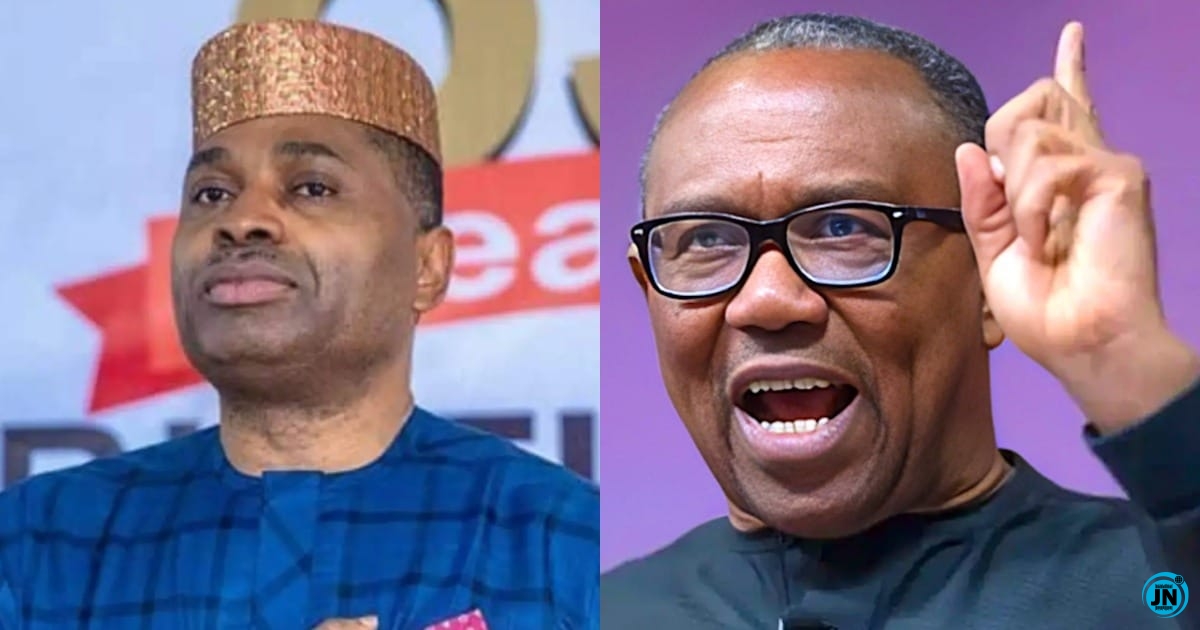
In a recent interview, former Labour Party chieftain and veteran actor-turned-politician, Kenneth Okonkwo, offered insights into the political reasoning behind Peter Obi’s promise to serve only one term if elected president. Okonkwo, who is also a member of Nigeria’s opposition coalition, suggested that Obi’s commitment was not merely a personal choice, but a strategic political move aimed at garnering support from northern voters.
Speaking on Channels Television’s Sunrise Daily on Friday, Okonkwo elaborated that Nigeria’s diverse political landscape necessitates careful balancing. He explained that for an opposition candidate to successfully challenge an incumbent, assurances must be made to all regions, ensuring that no section of the country feels marginalized or overlooked during or after the electoral process.
“So I brought the theory as a way for any opposition party to inspire Nigerians to know that each side will not lose when they make any choice, whether North or South,” Okonkwo said. He emphasized that Obi’s one-term promise was designed to reassure voters that the South would complete its eight-year tenure while also preserving opportunities for the North in subsequent elections, highlighting the need for inclusive governance in a politically sensitive nation.
Okonkwo further pointed out that the concept of a one-term presidency is not unprecedented. He referenced former Vice President Atiku Abubakar, who had previously proposed a similar idea as a political strategy. “It was even Atiku Abubakar that first of all said he was going to do one term, then Peter Obi now keyed into it because he knows that if he, as a younger person, does not make that promise, he loses the entire North. So it’s purely a political strategy,” he explained.
He added that Obi’s approach was carefully calculated to reassure Nigerians across the country that his administration would be fair and equitable, avoiding any perception that any region would be shortchanged. By making the one-term pledge, Obi aimed to build trust and confidence among voters that his leadership would respect regional balance while promoting national unity.
Okonkwo concluded that the political move underscores the complexities of Nigerian politics, where balancing regional interests is often critical to securing broad-based electoral support. He suggested that such strategies, though sometimes criticized, are essential for fostering inclusion and preventing the alienation of any part of the country during high-stakes political contests.